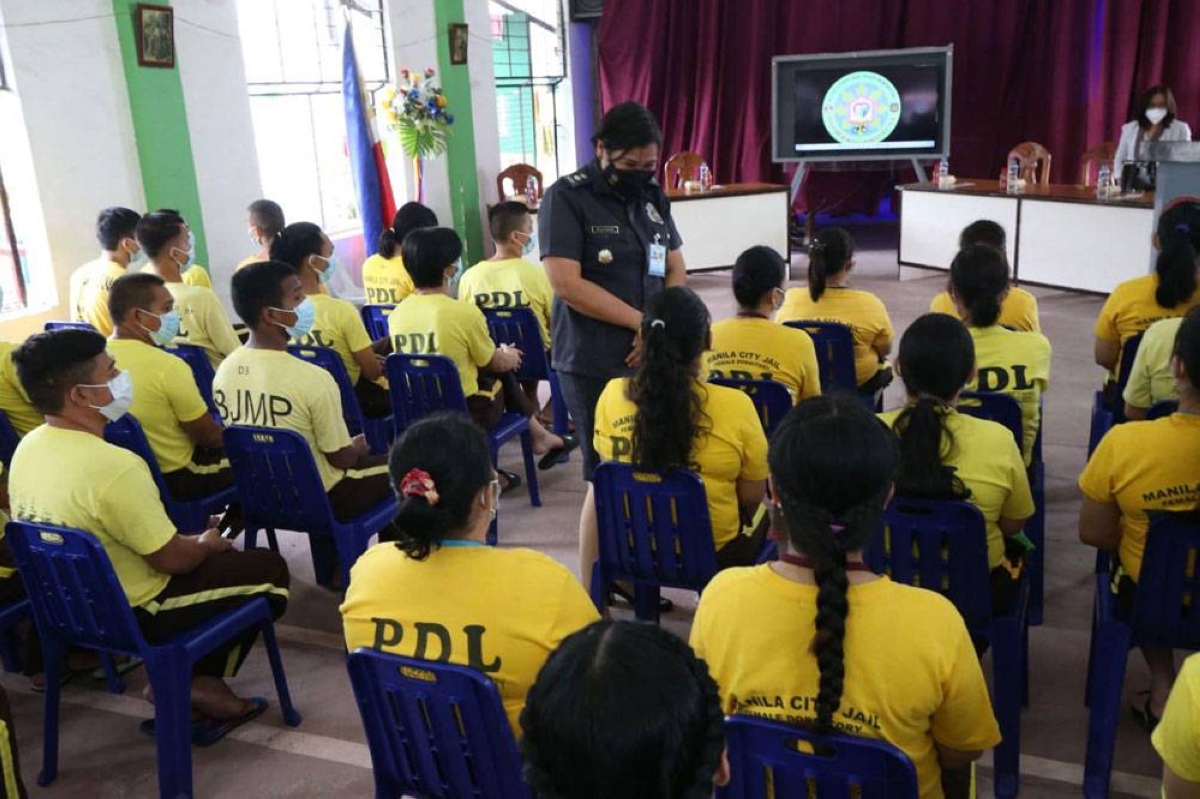A total of 74,590 persons deprived of liberty (PDLs) were released from January to October this year, according to the Bureau of Jail Management and Penology (BJMP). This significant number reflects the government’s commitment to resolving the issue of overcrowded prison cells in the Philippines.
Out of the total, approximately 10,000 individuals were freed after completing their respective sentences, while around 6,000 were transferred to the Bureau of Corrections (BuCor). The majority of releases were attributed to the Good Conduct Time Allowance (GCTA), a provision that grants sentence reductions to PDLs who exhibit good behavior during their incarceration. Chief Inspector Jayrex Bustinera, spokesperson for the BJMP, shared this information during a public briefing.
Moreover, the remaining PDLs who were released received paralegal assistance. Bustinera emphasized that the number of PDLs to be released is expected to increase before the end of the year. However, it is important to note that certain qualifications must be met by PDLs in order to be eligible for early release privileges offered by the government.
Despite the challenges posed by limited government lawyers, the BJMP’s paralegal officers played a crucial role in helping PDLs understand the complexities of their cases. They assisted PDLs in attending court hearings, facilitated meetings with their lawyers outside the jail facility, and ensured the smooth progress of their cases for possible early release from incarceration. This support from paralegal officers has been instrumental in providing legal guidance to PDLs.
In an effort to address the issue of overcrowded prisons, the Philippine government has initiated interagency coordination among the BJMP, the Department of Justice (DoJ), the Supreme Court, and the Department of the Interior and Local Government (DILG). This collaboration will be further strengthened through the upcoming National Jail Decongestion Summit, scheduled from December 6 to 7. The summit aims to explore solutions and strategies to alleviate the overcrowding problem in prisons.
The BJMP has also implemented a classification system to identify PDLs who may have a propensity to become “recidivists.” This system enables the bureau to take appropriate measures to address the concerns of these individuals within the jail facility. Additionally, the BJMP offers development opportunity programs, such as the Alternative Learning System (ALS), which allows PDLs to complete their junior or senior high school education. This initiative aims to decrease the likelihood of PDLs returning to prison once they are released.
Furthermore, the BJMP provides a college education program called “College Behind Bars” for qualified PDLs to continue their studies. This program offers PDLs an opportunity to pursue higher education, further equipping them with the necessary skills and knowledge for a successful reintegration into society.
The efforts made by the Philippine government, particularly the BJMP, in addressing the issue of overcrowded prisons and providing rehabilitation programs for PDLs, are commendable. By releasing eligible PDLs and offering educational opportunities, the government is taking crucial steps towards reducing recidivism rates and promoting the successful reintegration of former inmates into society.
It is important for the international audience to understand the context of the Philippine legal system, which includes provisions such as the Good Conduct Time Allowance and the Alternative Learning System. These initiatives demonstrate the government’s commitment to ensuring the welfare and rehabilitation of PDLs, while also addressing the challenges posed by overcrowded prisons.
In conclusion, the release of over 74,000 PDLs and the implementation of rehabilitation programs by the BJMP reflect the Philippine government’s proactive approach in resolving the issue of overcrowded prisons. These efforts, along with interagency coordination and the upcoming National Jail Decongestion Summit, signify a collective commitment to finding sustainable solutions and improving the justice system in the country.
Source: The Manila Times







